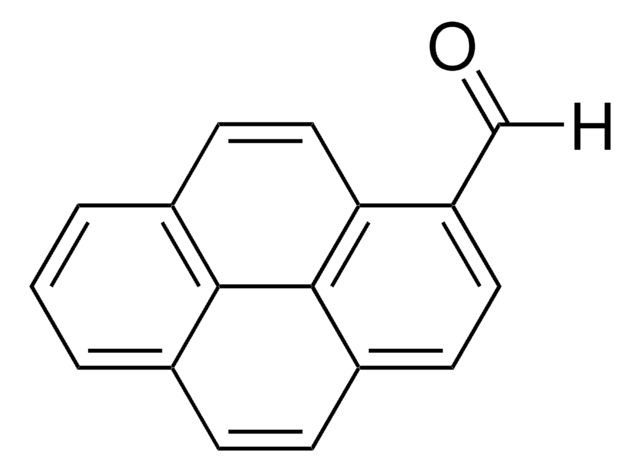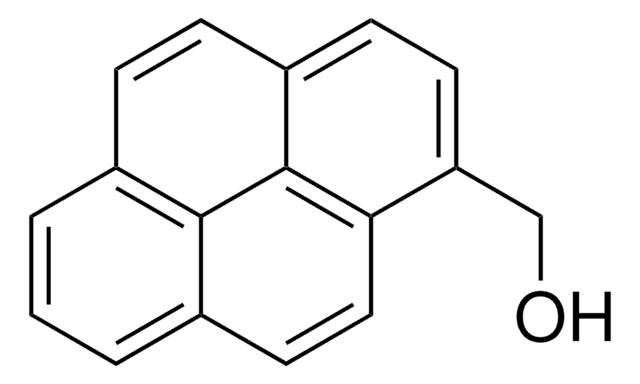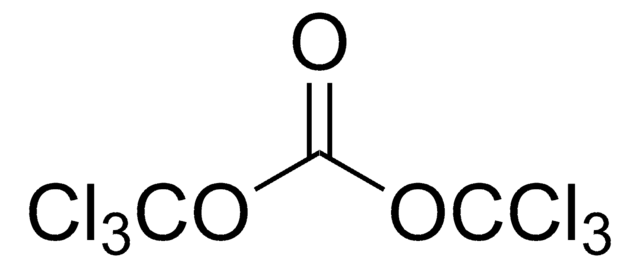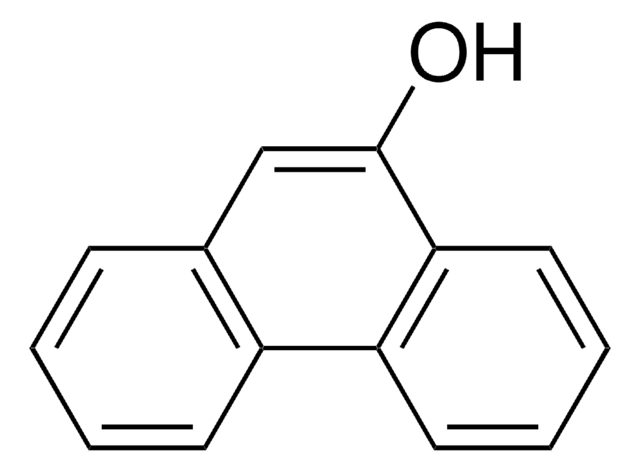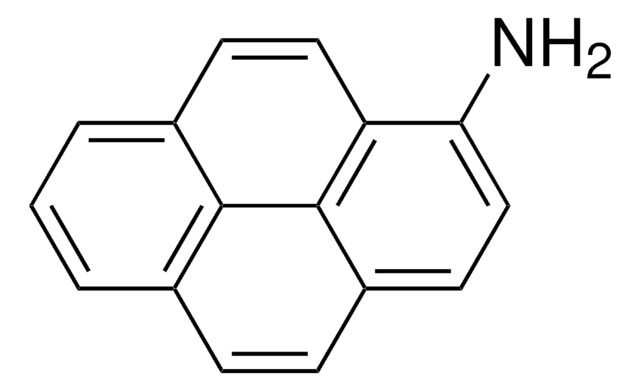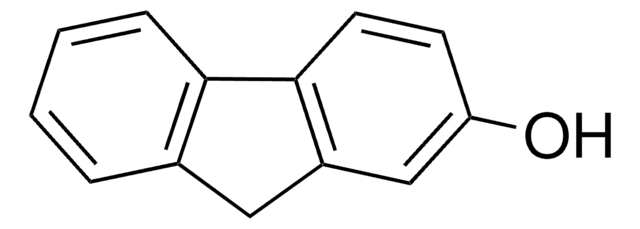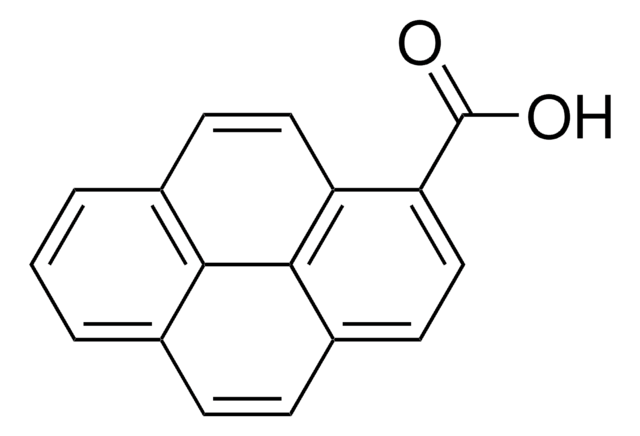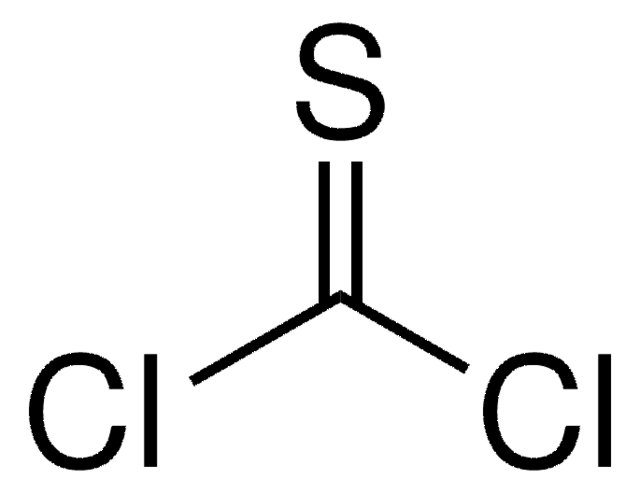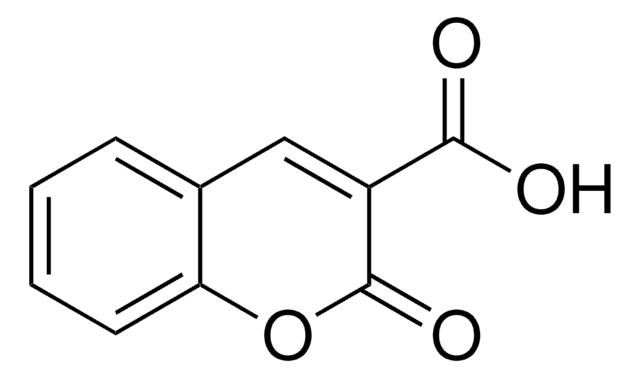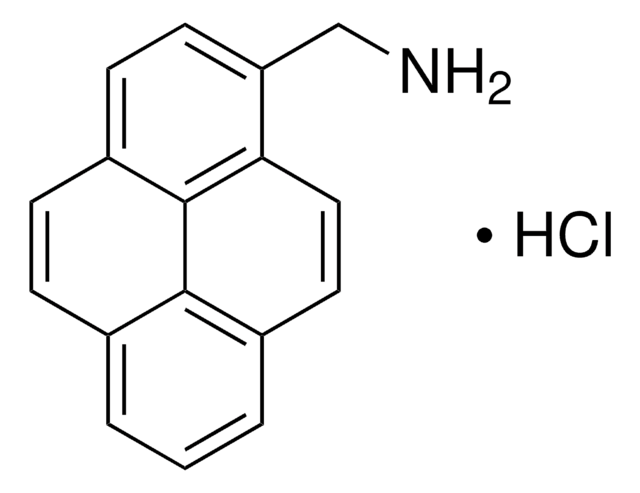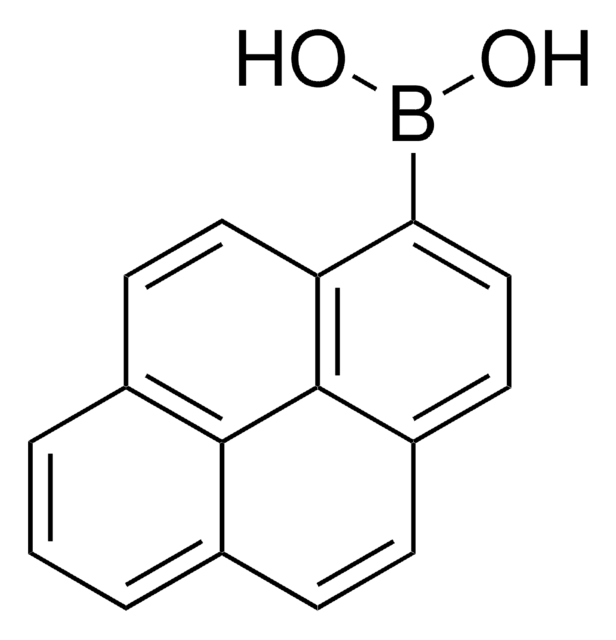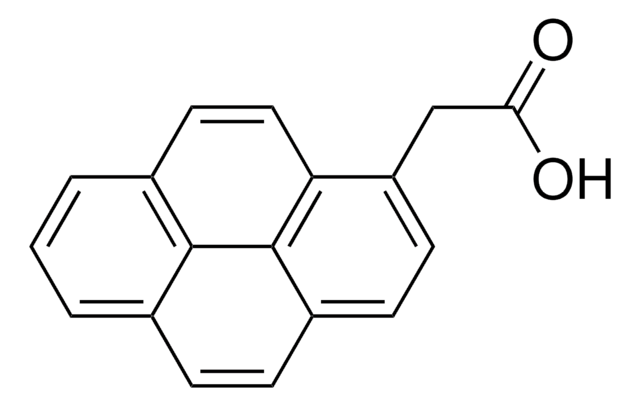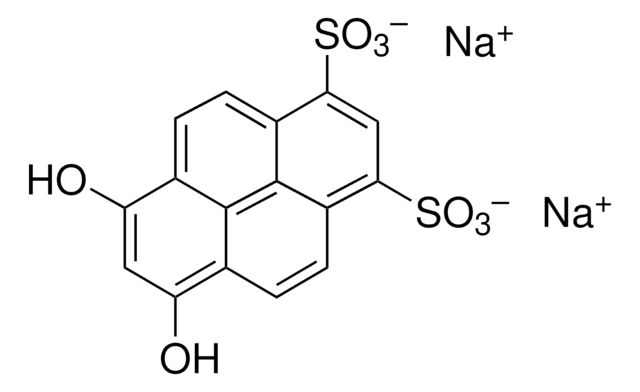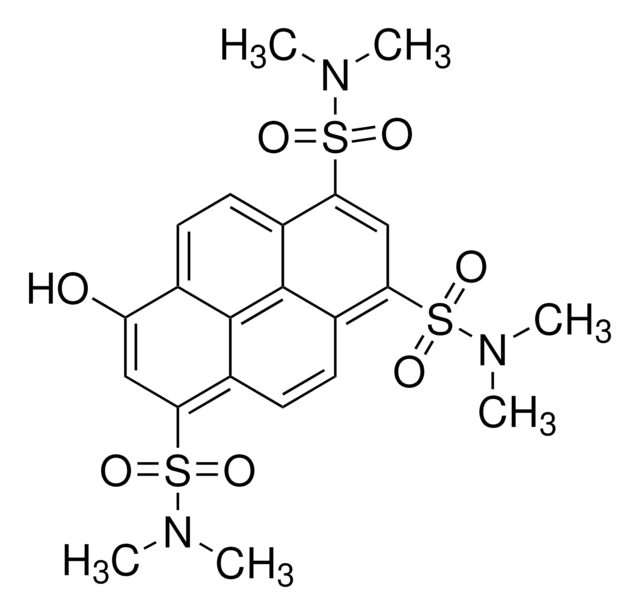361518
1-Hydroxypyrene
98%
Sinonimo/i:
1-Pyrenol
Autenticatiper visualizzare i prezzi riservati alla tua organizzazione & contrattuali
About This Item
Formula empirica (notazione di Hill):
C16H10O
Numero CAS:
Peso molecolare:
218.25
Numero MDL:
Codice UNSPSC:
12352100
ID PubChem:
NACRES:
NA.22
Prodotti consigliati
Livello qualitativo
Saggio
98%
Punto di fusione
179-182 °C (lit.)
Stringa SMILE
Oc1ccc2ccc3cccc4ccc1c2c34
InChI
1S/C16H10O/c17-14-9-7-12-5-4-10-2-1-3-11-6-8-13(14)16(12)15(10)11/h1-9,17H
BIJNHUAPTJVVNQ-UHFFFAOYSA-N
Cerchi prodotti simili? Visita Guida al confronto tra prodotti
Descrizione generale
1-Hydroxypyrene, as a urinary metabolite, is a marker of polycyclic aromatic hydrocarbons (PAH) exposure. 1-Hydroxypyrene is an important biomarker of exposure to pyrene.
Applicazioni
1-Hydroxypyrene is suitable for use in following studies:
- To investigate the fast detection and quantification of 1-hydroxypyrene in tissue extracts from Nereis diversicolor exposed to sediment-associated pyrene by a simple fluorometric method.
- To investigate the effects of genetic polymorphisms of the cytochrome P450 1A1 (CYP1A1) and 2E1 (CYP2E1) and glutathione S-transferases mu (GSTM1) and theta (GSTT1) on urinary 1-hydroxypyrene and 2-naphthol levels in aircraft maintenance workers.
- To examine the the PAH exposure of cokery workers in an Estonian oil shale processing plant.
Codice della classe di stoccaggio
11 - Combustible Solids
Classe di pericolosità dell'acqua (WGK)
WGK 3
Punto d’infiammabilità (°F)
Not applicable
Punto d’infiammabilità (°C)
Not applicable
Dispositivi di protezione individuale
dust mask type N95 (US), Eyeshields, Gloves
Scegli una delle versioni più recenti:
Possiedi già questo prodotto?
I documenti relativi ai prodotti acquistati recentemente sono disponibili nell’Archivio dei documenti.
I clienti hanno visto anche
Anders M B Giessing et al.
Marine environmental research, 56(5), 599-615 (2003-08-21)
The uptake of polycyclic aromatic hydrocarbons (PAHs) by marine deposit-feeding invertebrates can be determined by screening for PAH-derived metabolites. We identified 1-hydroxypyrene as the only intermediate metabolite in tissue of four species of deposit-feeding polychaetes, Nereis diversicolor, Nereis virens, Arenicola
F J Jongeneelen
Toxicology letters, 72(1-3), 205-211 (1994-06-01)
A biomarker of human exposure to chemical agents provides a valuable parameter for assessing the extent and significance of the uptake by giving a measurement that is direct and integrated over time and exposure routes. Urinary 1-hydroxypyrene is currently tested
Christiana A Demetriou et al.
Occupational and environmental medicine, 69(9), 619-627 (2012-07-10)
The association between ambient air pollution exposure and lung cancer risk has been investigated in prospective studies and the results are generally consistent, indicating that long-term exposure to air pollution may cause lung cancer. Despite the prospective nature and consistent
Laura Campo et al.
International journal of environmental research and public health, 15(6) (2018-06-06)
Active smoking is associated with increased body burden of polycyclic aromatic hydrocarbons (PAHs); the aim of this study was to assess whether environmental tobacco smoking (ETS) increases the internal dose of PAHs. In 344 nonsmoking Italian adults, out of 497
Ase M Hansen et al.
International journal of hygiene and environmental health, 211(5-6), 471-503 (2008-01-29)
A total of 132 studies were identified, of which 25 studies addressed environmental exposure to polycyclic aromatic hydrocarbons (PAHs) in the general population. Of these 9 studies included children. Of 101 studies among workers in various occupations, 32 studies were
Il team dei nostri ricercatori vanta grande esperienza in tutte le aree della ricerca quali Life Science, scienza dei materiali, sintesi chimica, cromatografia, discipline analitiche, ecc..
Contatta l'Assistenza Tecnica.